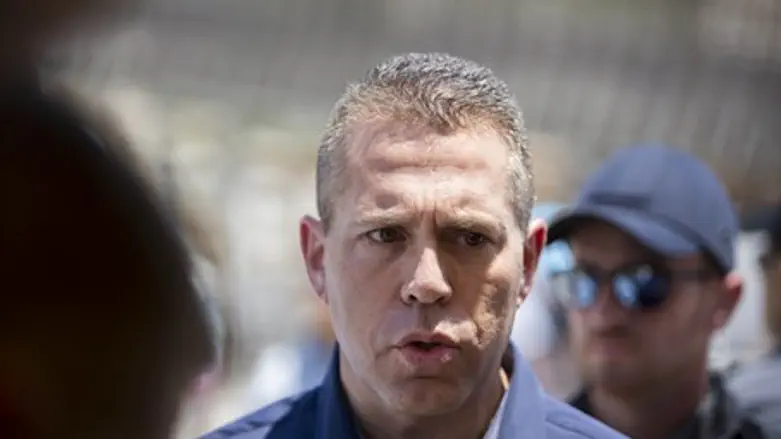
Internal Security Minister Gilad Erdan denied on Monday night that Israeli police are limiting the number of Jewish visitors to the Temple Mount to a certain quota, and further limiting entry via registration in advance.
The Headquarters of Temple Organizations reported on Monday morning that Jewish visitors to the holy site were surprised on Sunday to receive an announcement from the police, according to which the status quo on the Mount is to be changed starting Monday.
Only 45 Jews will be allowed to enter the site in the morning, and another 15 in the afternoon, according to the police announcement. Additionally, the police decided to prioritize the entry of Jews who had registered in advance with them.
But Erdan later on Monday denied this was the case, saying on Twitter, "There will not be a limit on the number of visitors to the Temple Mount."
"The police will do its utmost to facilitate the entry and secure as many visitors during the opening hours of the Mount," he added.
"In order to remove any doubt," explained Erdan, ''there is no obligation to schedule a visit to the Temple Mount in advance. The police simply recommended to coordinate the visit in advance just to save unnecessary waiting time at the entrance to the compound."
The Headquarters of Temple Organizations, for its part, posted a photo of the sign that was hung at the entrance to the Temple Mount, written on Israel Police letterhead, and which stated that visits to the Temple Mound must be arranged in advance by phone. The organizations said that the meaning of this is that the police are not conducting themselves in accordance with the instructions of the Minister as they arise from his tweets.
The step joins another controversial move at the site taken in response to the latest wave of Arab terror. Last month Prime Minister Binyamin Netanyahu agreed to install cameras on the Mount, in a move approved by Jewish Home chairman Naftali Bennett, who likewise stated his support of the Jordanian Waqf's ban on Jewish prayer.
However, Jordan's King Abdullah II made clear that the footage from the cameras will only be accessed by Jordan, which will then decide what segments to share with Israel.